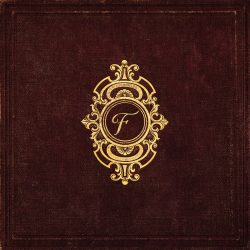The Fugitives rework soldiers’ songs from the First World War for a modern audience
 Vancouver, Canada’s folk band The Fugitives have taken on an ambitious project: reimagining war songs from World War I for a modern audience. They took the original lyrics, written by soldiers, and put them to new music, sometimes without the band members ever listening to the historic musical arrangements. The purpose of the rewriting was “to more readily access the emotional content of the lyrics” and continue the folk tradition of innovating and reshaping older material. The majority of ‘Trench Songs’ was recorded live on the floor at Monarch Studios in Vancouver to capture the sound of a group of friends sitting around and spontaneously singing together.
Vancouver, Canada’s folk band The Fugitives have taken on an ambitious project: reimagining war songs from World War I for a modern audience. They took the original lyrics, written by soldiers, and put them to new music, sometimes without the band members ever listening to the historic musical arrangements. The purpose of the rewriting was “to more readily access the emotional content of the lyrics” and continue the folk tradition of innovating and reshaping older material. The majority of ‘Trench Songs’ was recorded live on the floor at Monarch Studios in Vancouver to capture the sound of a group of friends sitting around and spontaneously singing together.
Fugitive Brendan McLeod, who is also a playwright and actor, found a trove of lyrics in the McMaster University online archive of soldiers’ hymnals and songbooks. Several original melodies were take-offs and parodies of now obscure popular songs of the day, and at this distance far too many in-jokes and cultural references are lost. Co-frontman Adrian Glynn, whose grandfathers and step-grandfather were World War I veterans, said that “in the same way a black and white photograph or staticky radio speech can create an obstacle for the modern observer, the original music arrangements could have distanced us from the emotions of these 100-year-old lyrics.”
Folk purists will undoubtedly baulk at the idea that the original music was changed at all. Was anything really gained by taking a soldier’s protest song from 1916 and making it sound like a folkie Wilco outtake? I think so. To the extent that lyrics written by very young men a little over a century ago are made more accessible to today’s listeners, who may not know much at all about that particular war, then yes, The Fugitives have succeeded in their goal. Barebones delicate acoustic guitar and violin make it all work.
As a microcosm of the day to day conflict, anger, boredom, horror, and despair of 1914-1918, ‘Trench Songs’ is an impressive project. The class tension between the commanding officers and regular soldiers in the trenches is displayed in the resentful ‘Hanging On the Old Barbed Wire,’ ‘Thirteen Pence,’ and ‘Never Mind.’ Homesickness, regret, and nostalgia are the themes of ‘Donegal (A Lament From The Trenches)’ and ‘Take Me Back to Old Ontario,’ with the understandable temptation of deserting. The heartrending ‘If I Could Turn The Clock Back’ applies to any soldier today deployed thousands of miles away from home. The whole gamut of emotion and dark humour coexist on ‘The Next Man Who Dies,’ which sounds like what would have resulted if Leonard Cohen had sat down to write a drinking song. The masculine bluster of the incredibly authentic-sounding ‘Where Do We Go, Boys’ is a boot-stomping, energetic, Pogues-like singalong obviously intended to raise everyone’s spirits.
These songs were also used in ‘Ridge,’ a recent film by McLeod about the First World War’s Battle of Vimy Ridge in 1917, which was part of the Battle of Arras in France. Vimy Ridge, where 10,000 Canadian soldiers died, is commonly mythologized as shaping Canada’s national identity and patriotism. As McLeod shows in both mediums of music and film, the truth is more complicated than that. ‘Ridge’ can be viewed here.


